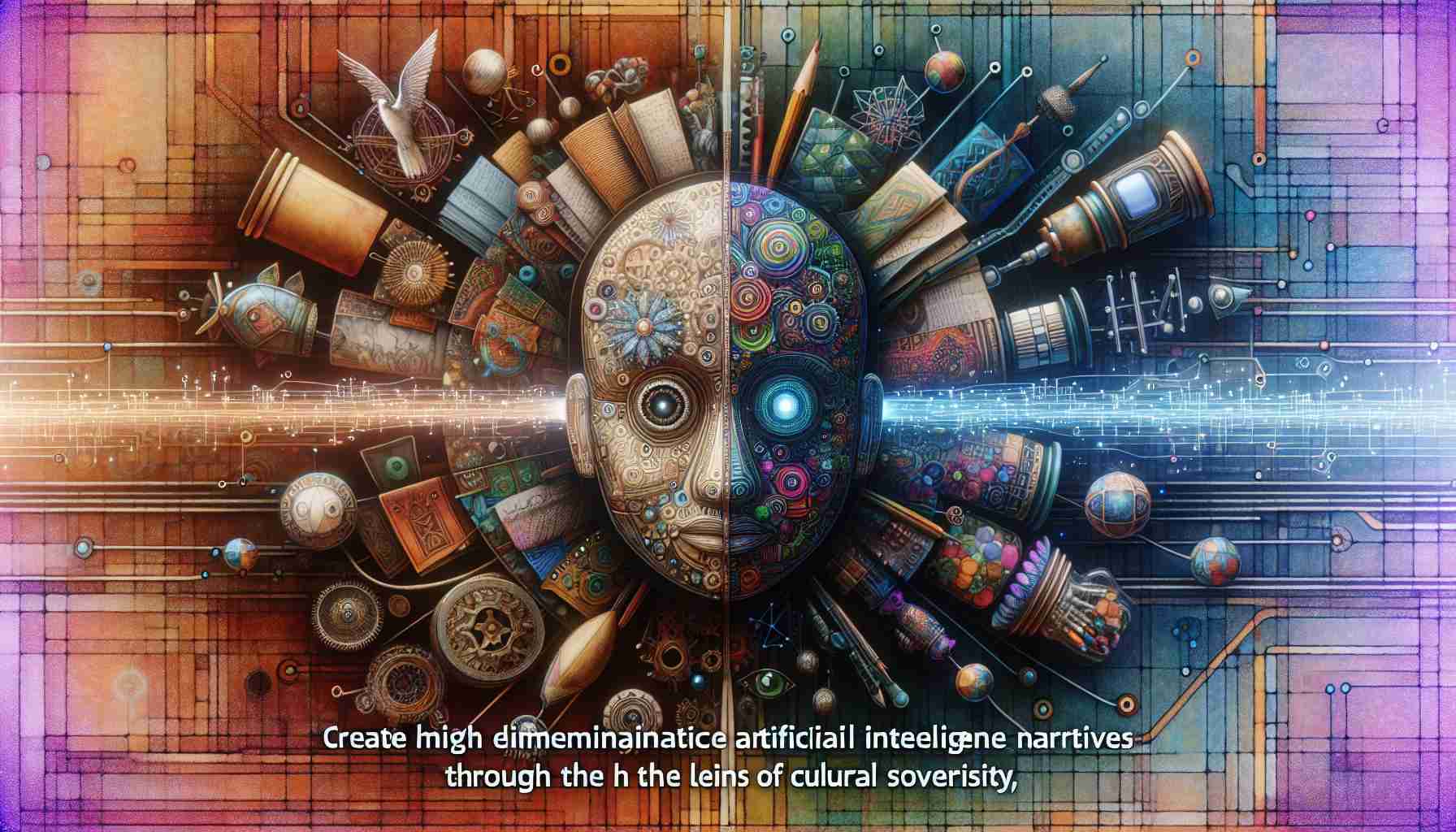In an initiative to redefine the landscape of artificial intelligence storytelling, the AI STORIES project spearheaded by Jill Walker Rettberg investigates the complex implications of narratives produced by AI. This research, grounded in a 2.5 million Euro ERC Advanced Grant, aims to uncover the biases within language models and encourage a more globally-representative range of stories in AI output. A summary of the project’s objectives and Rettberg’s vision suggests a transformative impact on AI development and usage.
Central to human culture, narratives play a pivotal role in shaping our perception of reality. AI STORIES, funded by a substantial ERC Advanced Grant, seeks to scrutinize the narrative abilities of generative AI, such as large language models (LLMs) that power systems like ChatGPT. Cognitive patterns in these AI models are hypothesized to be more deeply tied to narrative structures than previously believed, with a possible propensity towards American and English-speaking storylines.
Rettberg’s approach urges the integration of narrative theory into AI development, promoting a new narratology that takes into account diverse global narratives. By including a broader range of stories, such as those from Scandinavian, Australian, Indian, and potentially Nigerian cultures, the project aspires to avert the danger of narrative homogenization where dominant narratives overshadow regional and minority voices.
The endeavor not only resonates within academic circles but also aims to inform policymakers, tech developers, and educators. This holistic approach marks an intersection between the humanities and technological development, striving to guide the direction of future AI with a keen awareness of ethical and cultural considerations.
Rettberg’s notable achievements in her field lend her a position of influence and inspiration. Her engagement with both the industry and developer communities underscores an intent to implement a multi-faceted dialogue essential for diverse and ethical AI narratives. With AI STORIES, the University of Bergen, under Rettberg’s guidance, continues its legacy of securing ERC grants, demonstrating its pioneering commitment to research excellence.
The AI STORIES Project: Redefining Narrative Diversity in Artificial Intelligence
The AI STORIES project, led by Jill Walker Rettberg and fueled by a generous 2.5 million Euro ERC Advanced Grant, represents a significant initiative aimed at critically examining the narratives produced by artificial intelligence. With AI increasingly intersecting with various realms of human life, Rettberg’s project is not just an academic investigation; it epitomizes a step towards transforming the fabric of AI development and application.
Narrative plays a fundamental role in how we understand our world, and the AI STORIES project zeroes in on this fact by exploring the depths of generative AI, emphasizing large language models (LLMs). These AI-driven storytelling systems, like OpenAI’s ChatGPT, are potent tools that can convey and reinforce narratives, raising concerns that they might propagate biases and undervalue diverse perspectives particularly when they predominantly reflect Anglo-American storylines.
Breaking the Narrative Monopoly
Rettberg champions a novel and inclusive narratology—a term referring to the theory of narratives—that addresses the urgent need for AI to embrace a plurality of narratives. Incorporating stories from a multiplicity of cultures, such as Scandinavian, Australian, Indian, and African narratives, can help offset the risk of cultural narratives being homogenized. Her vision suggests significant implications for the industry, encouraging the development of AI technologies that are more representative of global diversity.
Forecasting the AI-driven Narrative Marketplace
Market forecasts in the realm of AI and storytelling are bullish, anticipating significant growth as industries capitalize on AI’s narrative power for everything from content creation to marketing. As AI technologies advance, the demand for culturally diverse and unbiased AI storytelling solutions is expected to rise, creating opportunities for businesses that can innovate in this space.
However, these advancements are not without their challenges. Issues such as maintaining privacy, securing intellectual property, and ensuring that AI outputs are not just diverse but also ethically sound are paramount. These concerns need to be addressed to foster consumer trust and comply with an evolving regulatory landscape.
Shaping Policy and Industry Standards
The goals of the AI STORIES project reflect a broader interdisciplinary effort that has the potential to influence policy and industry standards—highlighting the importance of collaboration between humanities scholars, policymakers, tech developers, and educators in creating more ethical and culturally inclusive AI technologies. If successful, this endeavor could also pave the way for more targeted educational programs, preparing a new generation of AI developers to consider narrative diversity from the get-go.
Legacy of Innovation and Excellence
The AI STORIES project is a beacon of the University of Bergen’s ongoing commitment to research excellence, a tradition exemplified by its consistent acquisition of ERC grants. Rettberg’s engagement with broader audiences extends her influence, enhancing the potential for tangible changes in how narratives are constructed and propagated by AI. For those interested in tracking the progress and insights emanating from this project, visiting the official university page could provide additional resources. You can find it at University of Bergen.
The transformative potential of the AI STORIES project cannot be overstated. As Rettberg and her team delve into the intricacies of AI narratives, the outcomes of their research hold promise for an industry on the cusp of redefining its narrative identity. The question now is not if, but how this project will reshape the narrative possibilities within the AI landscape for years to come.

